Got a plastic shed in your yard or thinking about buying one? You might be wondering, is a plastic shed considered a permanent structure? It’s a great question and an important one too. Whether you’re worried about permits, property taxes, or just want to follow the rules, knowing the difference between permanent and temporary structures can save you from big headaches down the road.
Table of Contents:[hide]
In this easy guide, we’ll explain what a permanent structure really means, how plastic sheds fit in and what it all means for your home, yard, and wallet. Read on to learn more.
What Is a “Permanent Structure”?
Let’s start with the basics. A permanent structure is something built to stay in one place for a long time. It’s usually anchored to the ground, built on a solid foundation, and made with materials meant to last, like wood, metal, or concrete.
But wait, what is considered a structure on your property? According to most zoning laws, a structure includes anything that’s built or assembled to support or shelter people, animals, or property. That means sheds, carports, garages, and even pergolas may count.
On the other hand, a temporary structure is designed to be easily moved, dismantled, or altered without significant effort. It’s often lightweight, simple to install, and not attached to your home or foundation.
In short:
- A permanent structure stays put
- A temporary structure is flexible and movable
What are Characteristics of Plastic Sheds
Now, let’s look at what makes plastic sheds different.
Plastic sheds are made from resin or polyethylene both strong, weather-resistant materials that don’t rot, rust, or crack like wood or metal. They’re easy to assemble, don’t usually need a permit, and can often be moved or disassembled.
Here’s what makes them popular:
- Lightweight and modular
- No paint or maintenance required
- Often installed on gravel, pavers, or grass
- Can include features like flooring, vents, and lockable doors
So, where do they fall? Are they part of semi permanent structures or temporary building structures? Let’s dig a little deeper.
When Is a Plastic Shed Considered Permanent?
A plastic shed is usually seen as a non permanent structure but not always. It depends on how it’s installed and how local codes define “permanent.”
Your shed may be considered permanent if:
- It’s anchored to a concrete foundation
- It’s larger than a set size (like over 120 sq ft)
- It has electricity or plumbing
- It’s not designed to be easily moved
On the other hand, it may still be temporary if:
- It’s installed on gravel or blocks
- It can be moved without tools
- It has no utilities attached
So, when does a temporary structure become permanent? That’s the key question. Usually, it depends on use, size, and how it's attached to the ground.
Pro Tip: Even if your shed appears temporary, your city may still consider it permanent. Always check your local rules.
Permit and Zoning Considerations
Now let’s talk red tape. Do you need a permit for a plastic shed? In many areas, small sheds (under 100–120 sq ft) don’t require a permit if they’re not wired or plumbed. But zoning rules vary a lot.
Things to check with your local office:
- Minimum distance from property lines (setbacks)
- Maximum shed height and footprint
- Allowed shed materials and roof types
- Whether your area allows temporary storage structures without permits
Even temporary outdoor structures can require permits if they sit close to a fence or a neighbor’s yard. And if your shed affects drainage or utility access, you may need to submit a site plan.
Pro Tip: Call your local building department. A 5-minute chat could save you a costly fine later.
Pros and Cons of Plastic Sheds as Permanent Structures
Let’s weigh it out. Should you treat your plastic shed like a semi permanent building? Here's a quick look:
|
Pros |
Cons |
|
Easy to assemble |
May not qualify as “permanent” under all codes |
|
Weather-resistant and low maintenance |
Might need anchoring for stability |
|
Budget-friendly compared to wood or metal |
Can be tricky to modify or attach extras |
|
Can be secured to concrete if needed |
Larger models may require permits |
|
Often moveable if needs change |
Less resale value added to property |
If you want a shed that’s strong but flexible, a plastic shed might be the sweet spot between a temporary garden structure and a full permanent building.
Alternative: Patiowell Plastic Sheds
Not ready to pour concrete or deal with permit paperwork? You’re not alone. Many homeowners want storage that’s durable and good-looking, but without the hassle of building a full-on permanent structure. That’s where Patiowell plastic sheds come in. These sheds offer the strength and style of a solid unit, combined with the flexibility of a temporary structure.
1. Fit-It Series: Compact and Convenient
Tight on space? The Fit-It Series is just what you need. These plastic sheds are easy to set up—no need for power tools or concrete pads. They’re perfect for smaller yards, patios, or driveways. If you’re a homeowner or a temporary building expert who needs quick and clean storage, this series delivers.
- Great for storing garden tools, folding chairs, or seasonal gear
- Available in compact sizes like 4×4 and 4×6
- Quick-click assembly system
- Lightweight but tough resin that handles rain, sun, and snow

 |
 |

|
2. Kick-It Series: Durable and Long-Term
If you’re looking for something a little more heavy-duty, the Kick-It Series is a top pick. These sheds offer semi permanent structure vibes with stronger walls, wider doors, and optional flooring kits. That means you can use them for long-term storage without worrying about weather or wear.
- Ideal for riding mowers, bikes, bins, and backyard gear
- Sizes like 8×6 and 8×10 available for more storage room
- Reinforced double walls with locking doors
- Ventilation and drainage built in to protect your stuff

 |
 |

|
Safe, Smart and Built to Last
Still not sure? Patiowell sheds are packed with thoughtful features that make outdoor storage easy and safe:
- Lockable doors to keep your belongings secure
- Built-in vents for fresh airflow—no more musty smells
- Weatherproof resin that won’t rot, rust, or fade
- Easy-to-clean walls that wipe down in minutes
- Optional anchoring kits to hold the shed steady during storms
Note: Many models come with a 10-year or lifetime warranty, plus free shipping. So whether you want a temporary building structure or a reliable home for your tools, Patiowell has a shed that fits.
FAQs
1. Do I need a permit for a plastic shed?
Maybe. Small sheds often don’t require a permit, but anything with plumbing, wiring, or a concrete base usually does. Always check your local building code.
2. Can I secure a plastic shed to a concrete base?
Yes! Most plastic sheds can be bolted down using built-in anchor points. This makes them more stable and possibly more permanent in the eyes of your city.
3. Will my shed affect property taxes?
Sometimes. If it’s considered a permanent structure, it may raise your property’s assessed value. Temporary sheds usually don’t, but check with your county just in case.
4. Can I move a plastic shed later?
Absolutely. That’s one of their biggest benefits. Many plastic sheds can be disassembled and moved if your needs change especially if they’re not bolted down.
Conclusion
So, is a plastic shed considered a permanent structure? Well, it depends. Most plastic sheds start off as temporary structures, but once you anchor them, add electricity, or hook them up to plumbing, your local city might see things differently. Before you set one up, ask yourself: Will it stay in one spot for years? Is it connected to a foundation or utilities? Does it follow local zoning rules?
If the answer is yes, you might need to treat it like a semi permanent structure and maybe even pull a permit. The good news? Plastic sheds give you the freedom to choose what works for your space and your needs. And with Patiowell, you get strong, smart storage without the stress. Just know the rules, make the right call, and enjoy your new shed with peace of mind.
Diana Mason
Hi there! I’m Diana Mason, the chief editor of Patiowell brand. With over 15 years of diving deep into the world of outdoor furniture, I’ve developed a keen eye for what makes outdoor spaces truly special. I love sharing tips and inspiration to help you create your perfect backyard retreat. Our blog is a reflection of my passion and expertise, featuring only the best pieces that I personally vouch for. Thanks for stopping by—I can't wait to help you transform your outdoor living space!

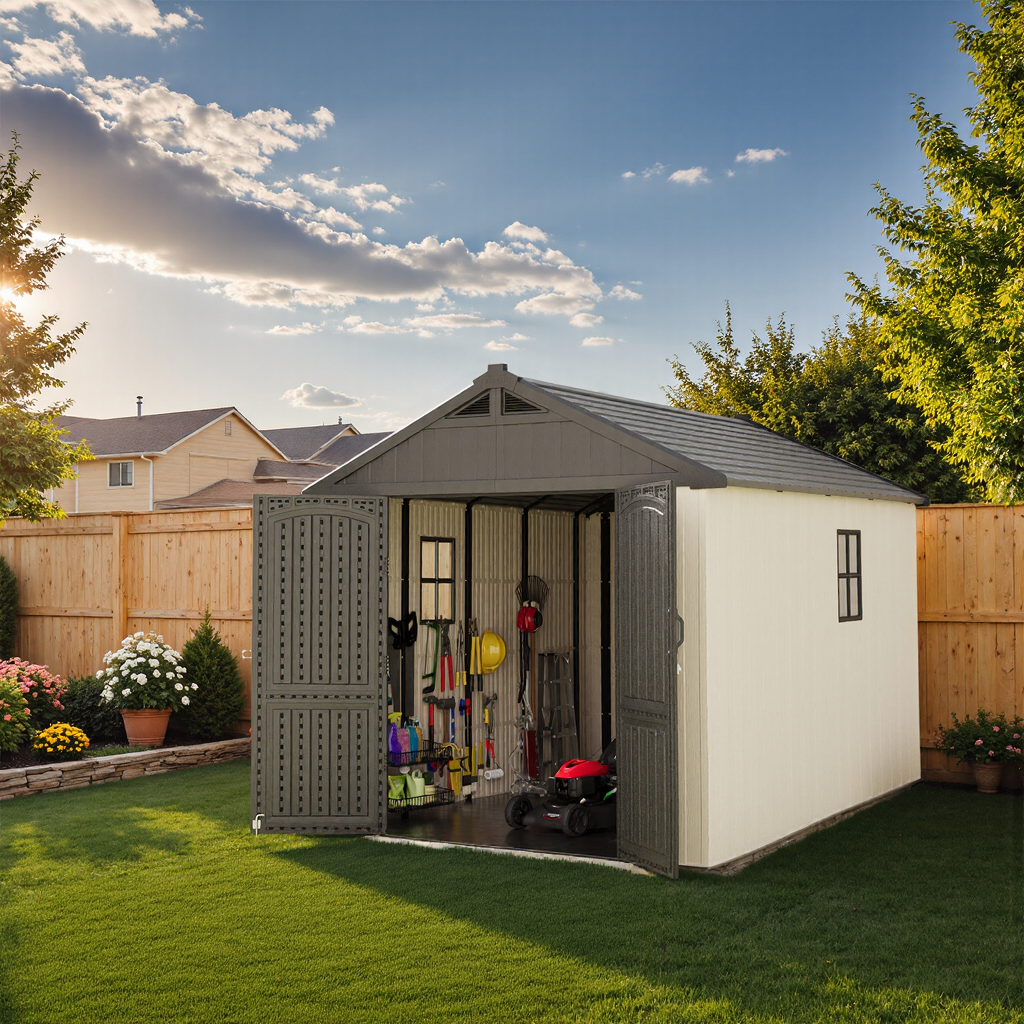
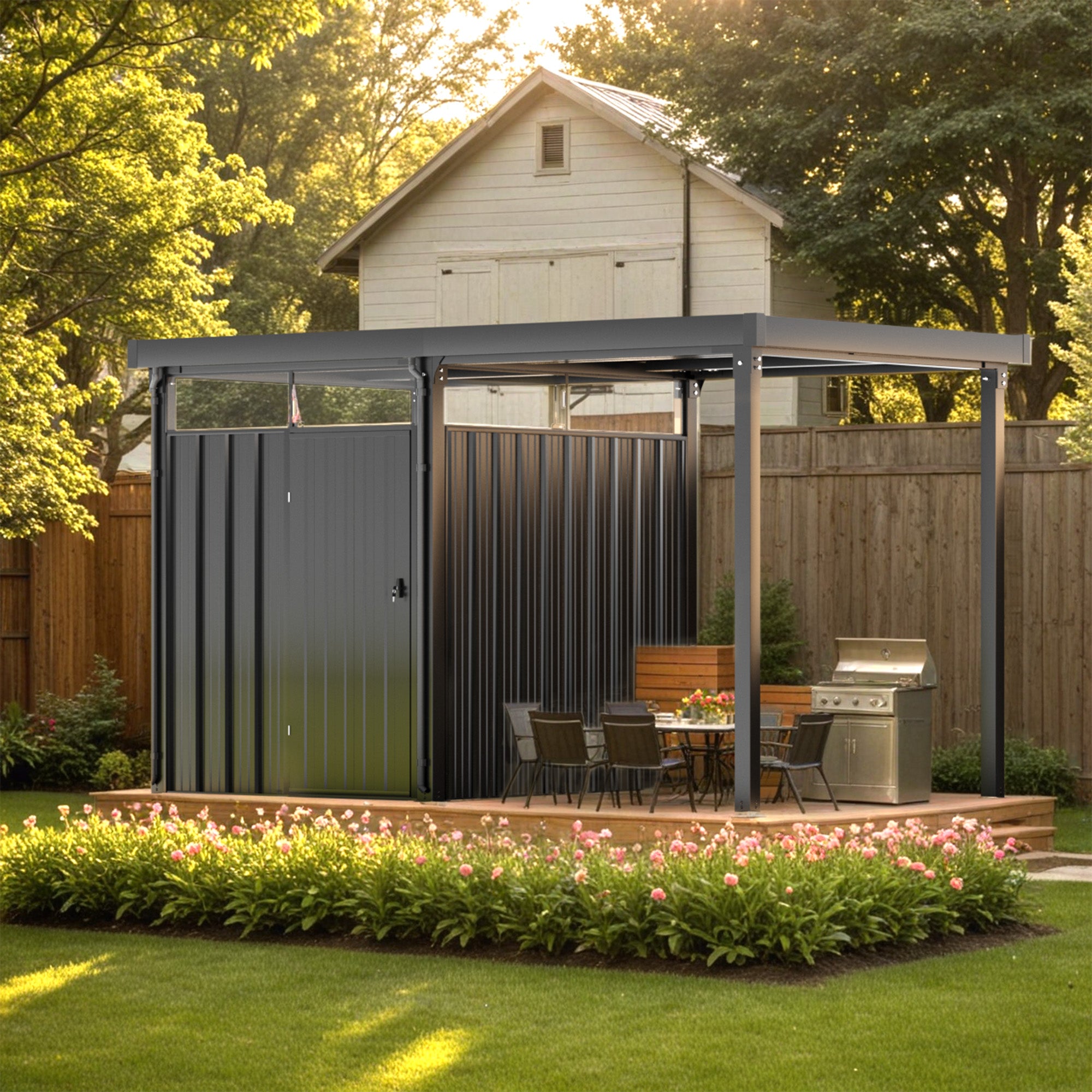
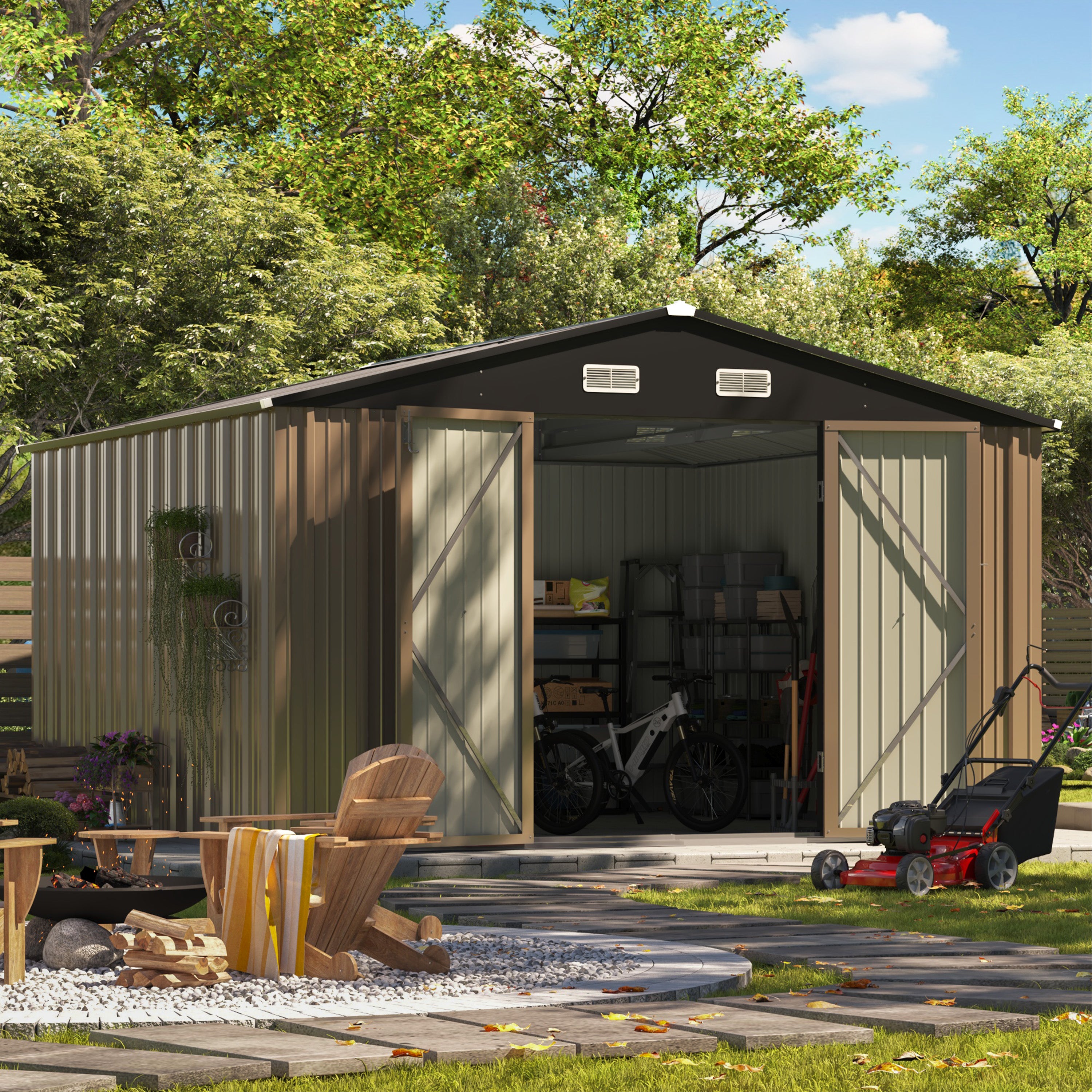

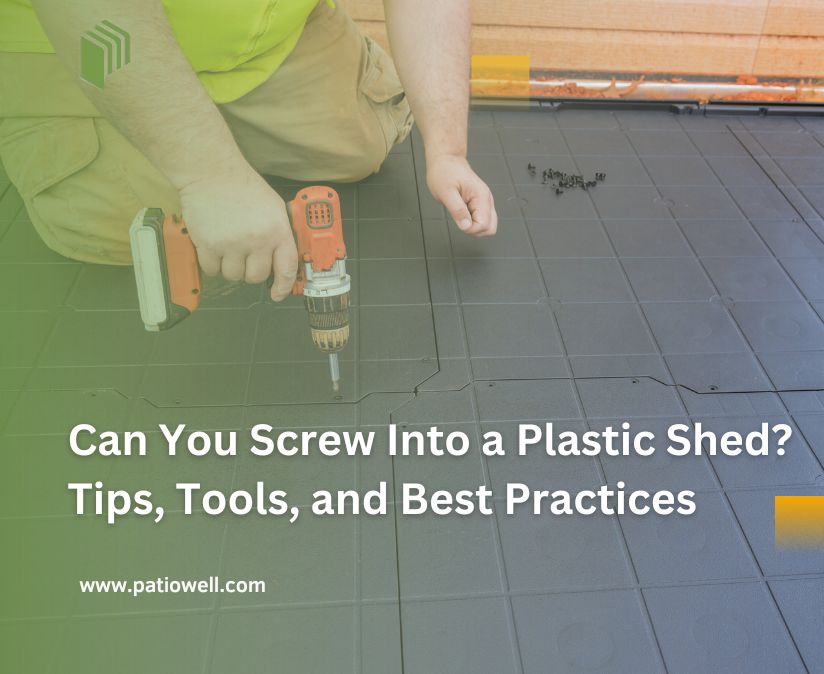
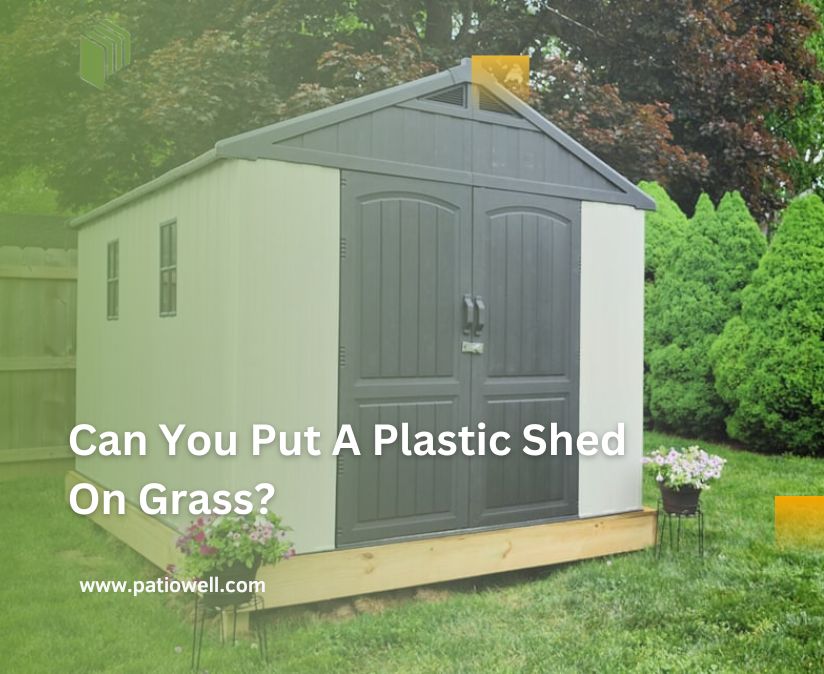
Leave a comment
All comments are moderated before being published.
This site is protected by hCaptcha and the hCaptcha Privacy Policy and Terms of Service apply.